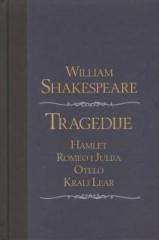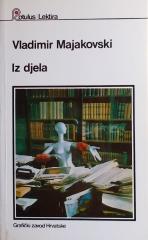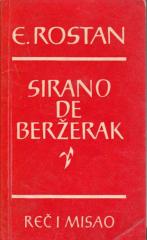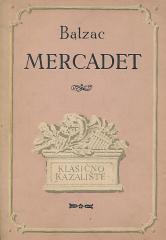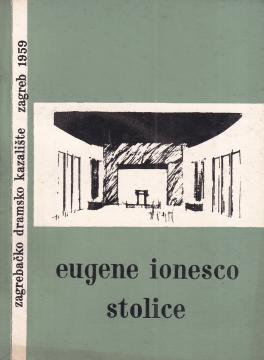
Stolice
„Stühle“ ist ein Einakter von Eugène Ionesco, einem der bedeutendsten Vertreter des Theaters des Absurden, das 1952 uraufgeführt wurde. Diese Ausgabe wurde anlässlich der Uraufführung des Stücks im Zagreber Dramatheater im Jahr 1958 gedruckt.
Das Drama zeigt die Sinnlosigkeit der menschlichen Existenz durch die Symbolik der Leere und kommunikativen Ohnmacht. Die Handlung des Stücks spielt in einem abgelegenen, heruntergekommenen Raum auf einer einsamen Insel, wo ein altes Ehepaar – der alte Mann und die alte Frau – die letzten Momente seines Lebens verbringt. Der alte Mann, 95 Jahre alt, hat eine wichtige Botschaft, die er der Menschheit übermitteln möchte, und die alte Frau unterstützt ihn in seinem Vorhaben. Sie erwarten die Ankunft von Gästen zu dem von ihnen organisierten Treffen, damit der alte Mann seine philosophische Idee über den Sinn des Lebens vorstellen kann.
Als die Gäste „ankommen“, stellt die Alte Frau immer mehr Stühle auf, doch die Anwesenden bleiben unsichtbar, was eine surreale und groteske Atmosphäre schafft. Stühle stapeln sich und füllen den Raum, während der alte Mann und die alte Frau mit ihnen reden, als ob sie real wären. Schließlich kommt der Sprecher, ein professioneller Redner, dessen Aufgabe es ist, die Botschaft des alten Mannes zu übermitteln.
Nachdem jedoch der alte Mann und die alte Frau in der Überzeugung, dass sie ihre Mission erfüllt haben, ins Meer springen, stellt sich heraus, dass der Sprecher stumm ist und nicht in der Lage ist, etwas Sinnvolles zu sagen. Die Botschaft bleibt unausgesprochen und das Publikum wird mit Absurdität und Leere konfrontiert.
„Stühle“ symbolisieren die Leere menschlicher Kommunikation und die Sinnsuche in einer Welt der Absurdität. Unsichtbare Gäste repräsentieren die Illusion sozialer Beziehungen und Selbsttäuschung. Die Unfähigkeit des Redners, eine Botschaft zu vermitteln, zeigt die Unfruchtbarkeit der menschlichen Existenz und das Versäumnis, wichtige Ideen zu vermitteln.
Das Drama thematisiert existenzielle Einsamkeit und die Illusion von Kommunikation, während leere Stühle zu Symbolen unerfüllter Erwartungen und verlorener menschlicher Verbindungen werden.
Angeboten wird ein Exemplar
